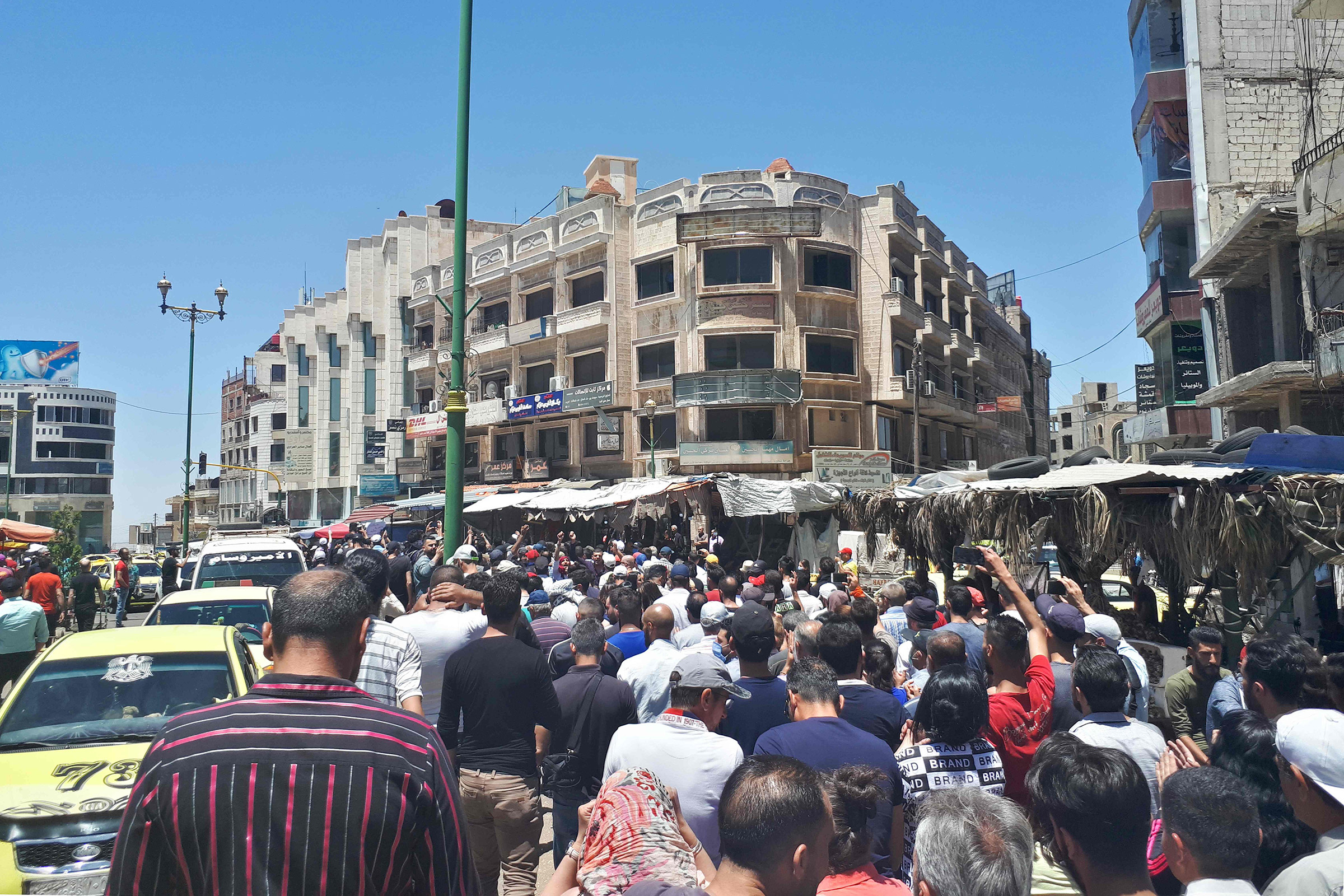
Syria’s Bashar Assad has been counted out before. There were times during his country’s civil war, which has killed hundreds of thousands of people and pushed more than 12 million more from their homes, when it seemed the only way forward for all the major parties involved would be for Russia and Iran, Assad’s chief sponsors, to find him a new home and a suitably loyal replacement. He survived in part because of former President Barack Obama’s reluctance to deepen U.S. involvement in Syria.
Today Assad’s government is again fully in charge of about two-thirds of his nation’s territory. The isolated city of Idlib, site of a slow-motion humanitarian catastrophe, remains beyond his grasp. Turkey’s military, U.S.-backed Kurds, and jihadists remain active in other areas outside the military’s control.
But beyond survival, there must be times when Assad wonders what prize he has won. Nine years of war and sanctions have reduced Syria’s economy to one-third of its prewar size, and things have only gotten worse over the past year. Four in 10 Syrians have no job, and 4 in 5 live in poverty. The country’s currency is nearly worthless. Prices for necessities like food and medicine have risen beyond the means of most Syrians.
As conditions have worsened, public protests have returned to at least one town under government control. There is little reliable information about the spread of COVID-19 around the nation because the government keeps the details a secret. A proposed U.N. Security Council resolution calls for expansion of the number of border crossings into the country to meet “a profound challenge to Syria’s health system, socioeconomic and humanitarian situations.”
Is Assad’s future in danger? Warning signs are flashing. To scrape up the cash needed to pay government and military salaries, the regime has lately put the squeeze on some of the country’s wealthiest businessmen, who owe their fortunes to friendly relations with the Assad regime. Some of these men have resisted. One of them, billionaire financier Rami Makhlouf, has launched a startlingly public fight over this pressure. When the government froze his assets and began arresting some of his employees, Makhlouf, who also happens to be Assad’s first cousin, launched a highly unusual series of Facebook posts that called on Assad to ease the pressure or face “divine justice.”
But Assad’s latest headache comes from the Trump Administration. In December, Trump signed into law the Caesar Syria Civilian Protection Act, which in mid-June set in motion a whole new set of sanctions targeted at those who might bail Assad out. (Caesar was the code name of a photographer who escaped Syria with more than 50,000 photos that proved the government tortured and murdered its citizens.) Specific targets of the sanctions include foreigners “who facilitate the Assad regime’s acquisition of goods, services or technologies that support the regime’s military activities” or its oil and gas industries, as well as “those profiting off the Syrian conflict by engaging in reconstruction activities.”
Don’t bet on Assad’s buckling. Sanctions often strengthen the regimes they’re meant to undermine. Even if Assad’s backers in Moscow and Tehran decide the Syrian strongman has become more trouble than he’s worth, they would replace him with someone who can ensure that regime backers remain firmly in charge of the government’s decisions.
Instead, the U.S. pressure will probably just pile more economic pain on those it’s designed to protect: the Syrian people.
More Must-Reads From TIME
- The 100 Most Influential People of 2024
- The Revolution of Yulia Navalnaya
- 6 Compliments That Land Every Time
- What's the Deal With the Bitcoin Halving?
- If You're Dating Right Now , You're Brave: Column
- The AI That Could Heal a Divided Internet
- Fallout Is a Brilliant Model for the Future of Video Game Adaptations
- Want Weekly Recs on What to Watch, Read, and More? Sign Up for Worth Your Time
Contact us at letters@time.com